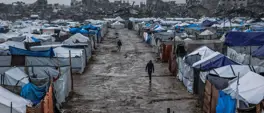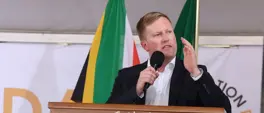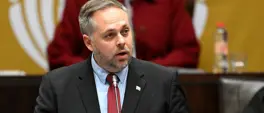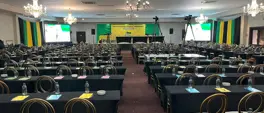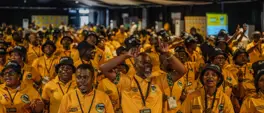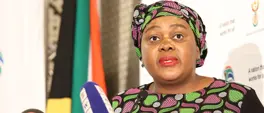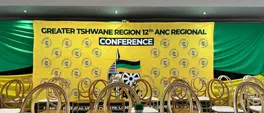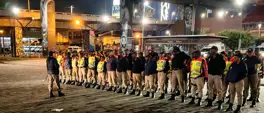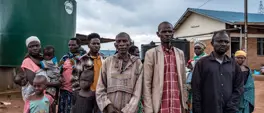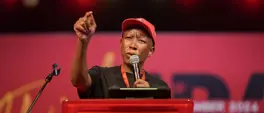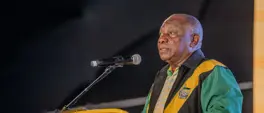Year in review: GNU shakes up Parliament, falls from grace & impeachments
Zunaid Ismael
31 December 2024 | 13:33EWN looks back at the year that was and some of the major stories from Parliament that made the headlines in 2024.
EWN looks back at the year that was and some of the major stories from Parliament that made the headlines in 2024.
GNU DAWN
Arguably the biggest story of the year is that after 30 years, the African National Congress (ANC) is no longer the ruling party. On 29 May, South Africans went to the polls and effectively gave the ANC the finger, handing the party its worst election showing since the start of the democratic dispensation in South Africa.
After the votes were tallied, the ANC ended up with 40.1% of the vote, meaning it lost its majority in Parliament. While it still had the most votes, it would need to form a coalition with other parties represented in Parliament to form a government.
And thus the grandly named Government of National Unity or GNU was formed, as, after nearly a month of intense talks, nine other parties joined the ANC coalition to run the country. These parties are the Democratic Alliance (DA), the Inkatha Freedom Party (IFP), Patriotic Alliance (PA) Good Party, Pan Africanist Congress of Azania (PAC), Freedom Front Plus, United Democratic Movement (UDM), Al Jama-ah and Rise Mzansi.
With the DA joining government, this left Jacob Zuma's uMkhonto weSizwe (MK) Party as the party with the most seats not in government, as the official opposition.
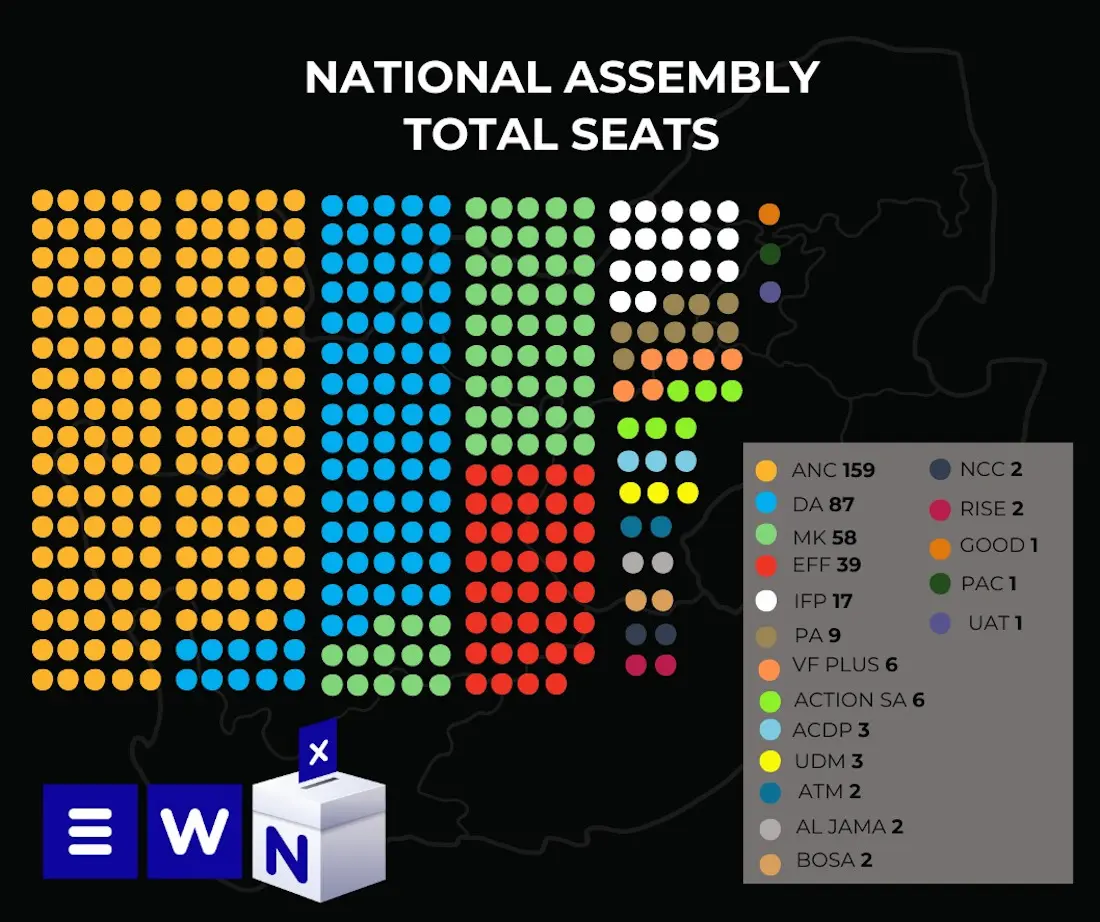
Graphic: Eyewitness News
The ANC's Cyril Ramaphosa was elected president and Paul Mashatile his deputy. The ANC's Thoko Didiza was elected as the Speaker of the National Assembly, with Annelie Lotriet of the DA as the deputy speaker. The ANC's Refilwe Mtshweni-Tsipane was elected chairperson of the National Council of Provinces (NCOP).
Ramaphosa then announced an expanded Cabinet as he sought to accommodate his coalition partners. The DA bagged 12 positions (ministerial and deputy ministers), the IFP received four, and the PAC, PA, Good, UDM and Al Jama-ah received one position each.
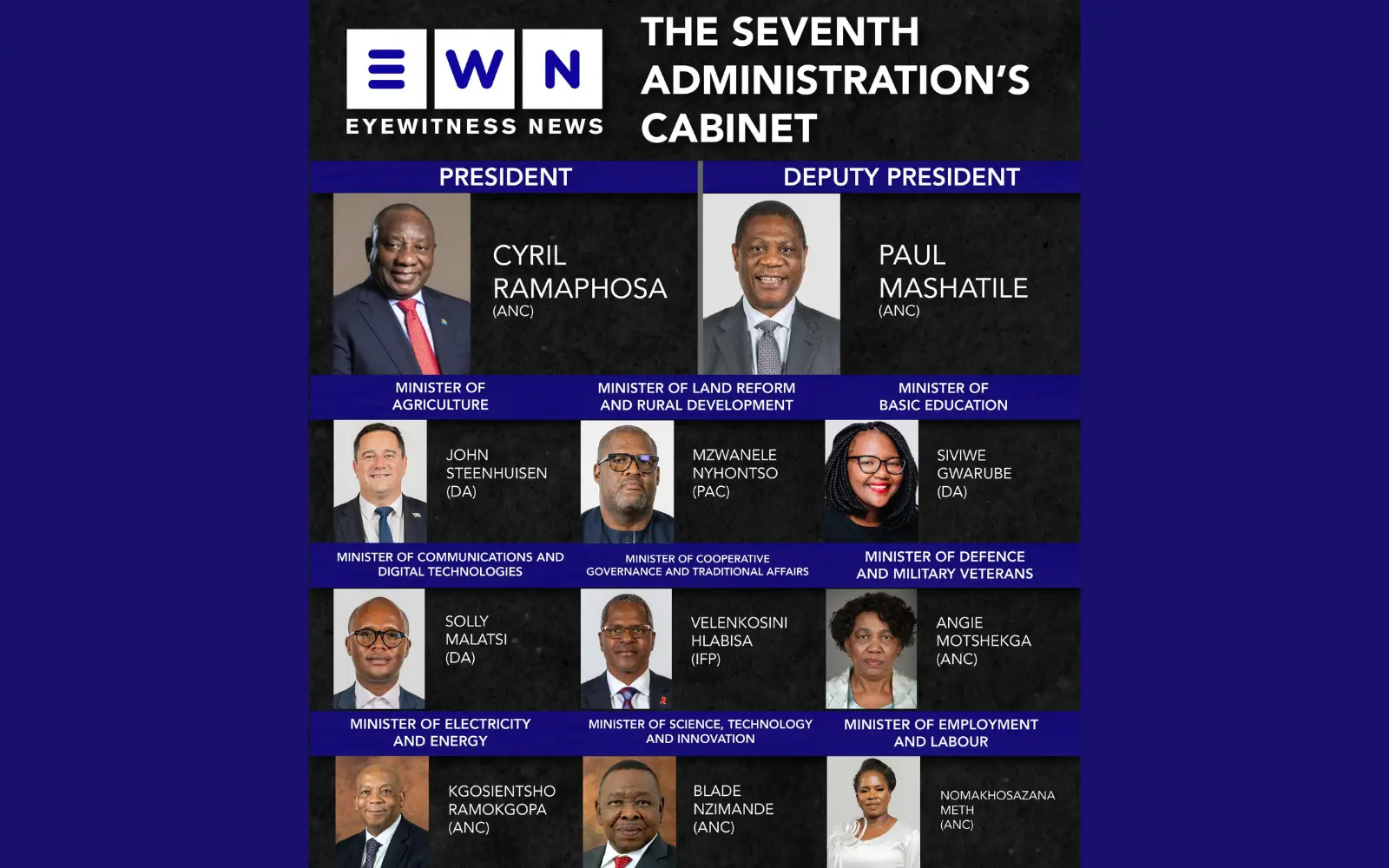
Graphic: Eyewitness News
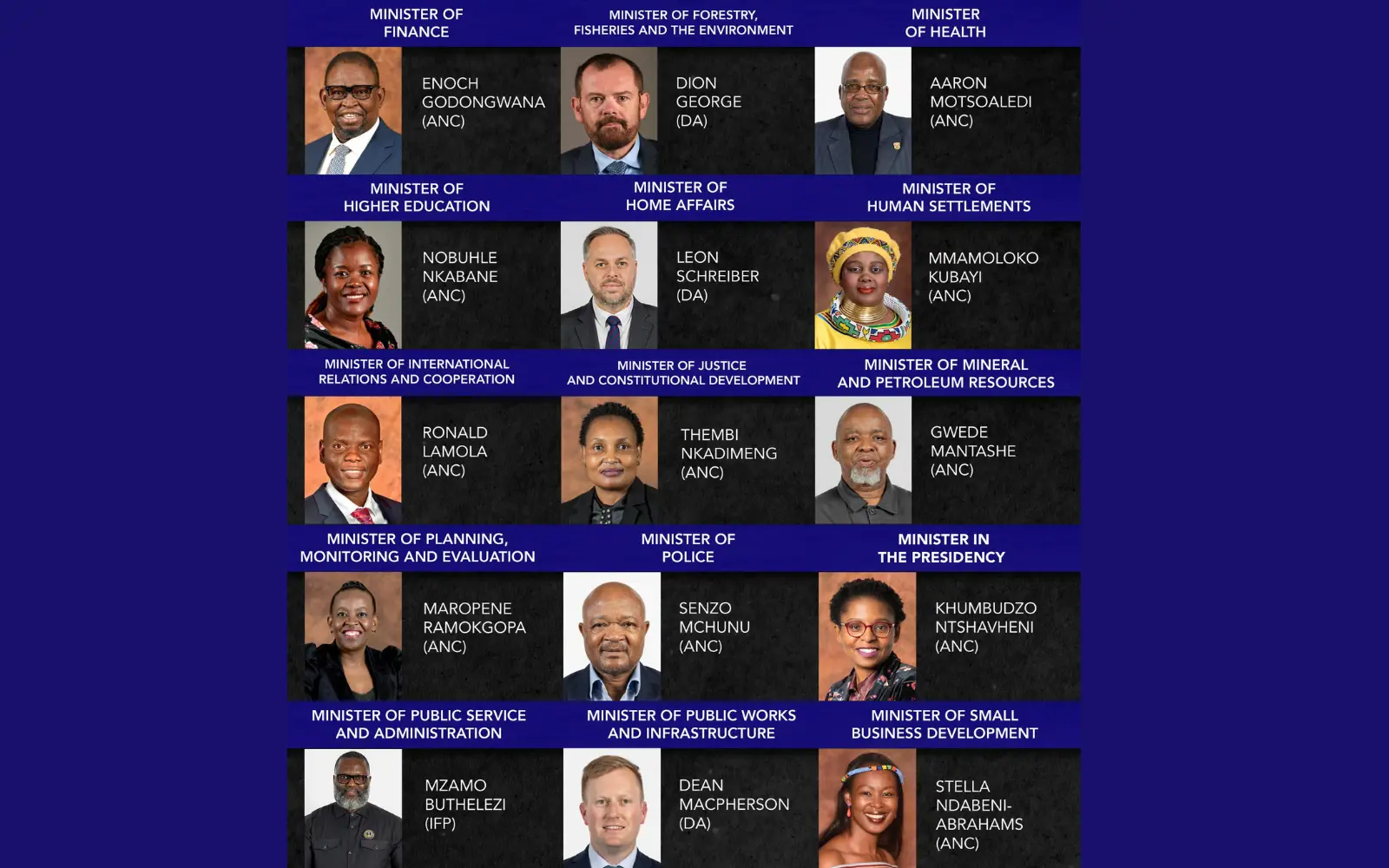
Graphic: Eyewitness News
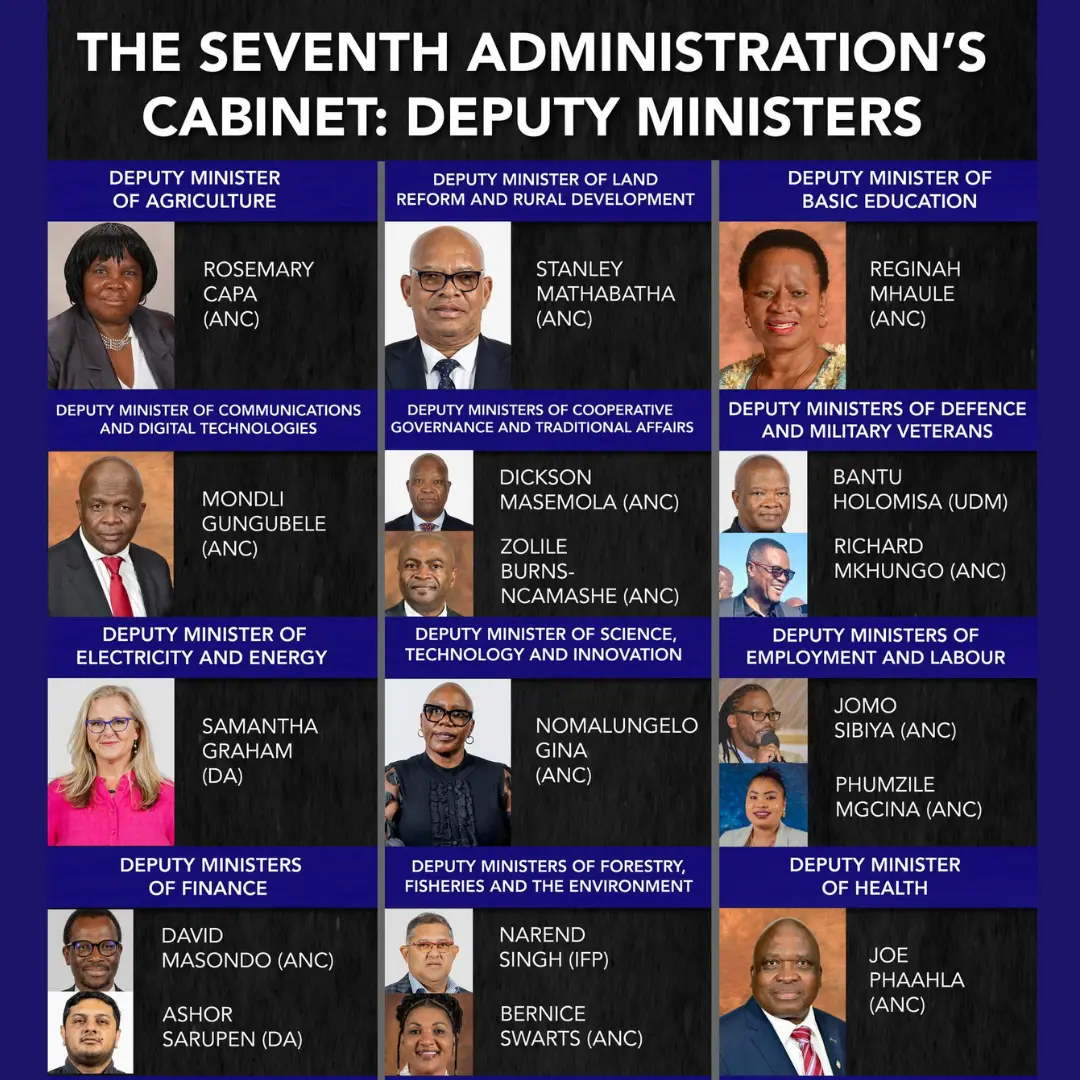
Graphic: Eyewitness News
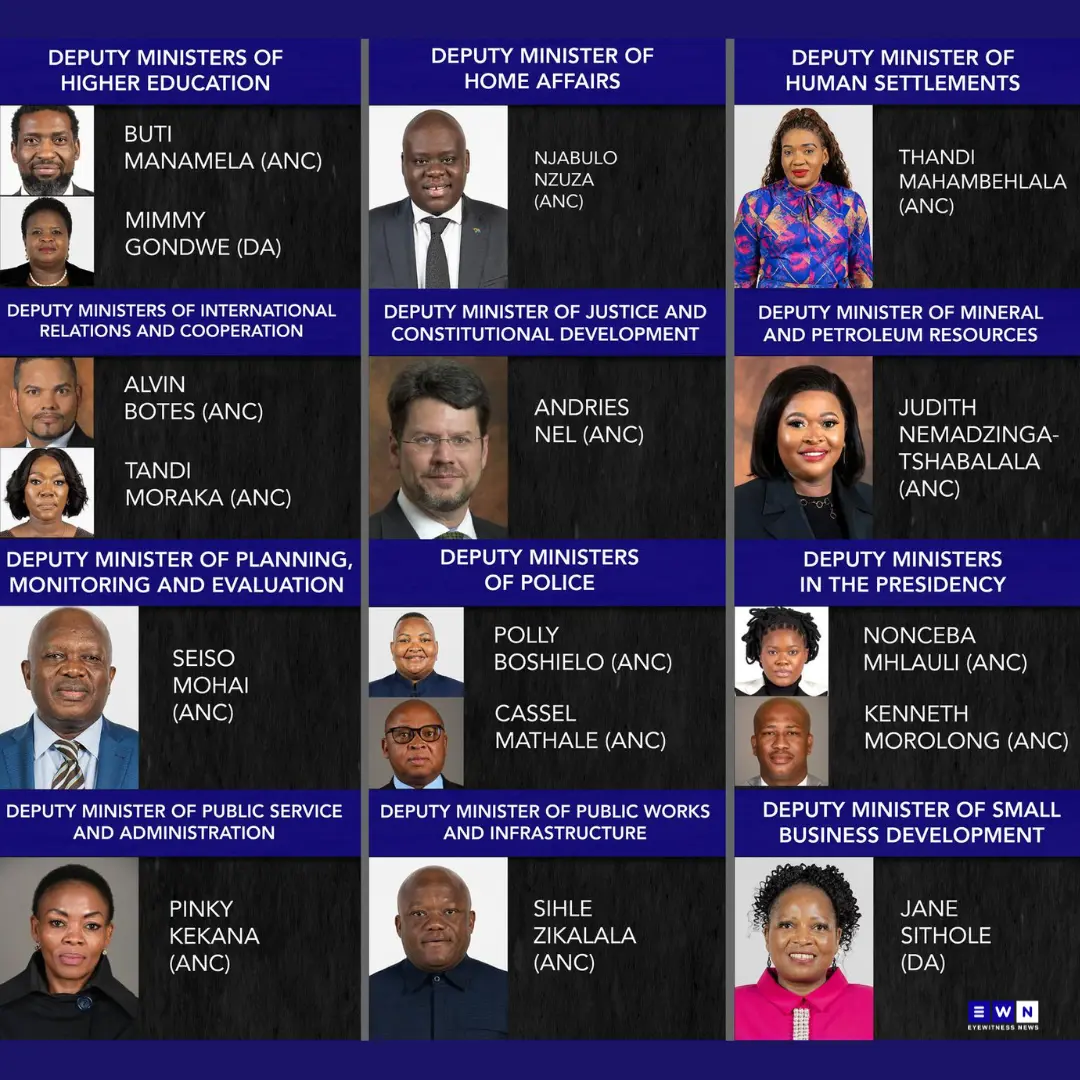
Graphic: Eyewitness News
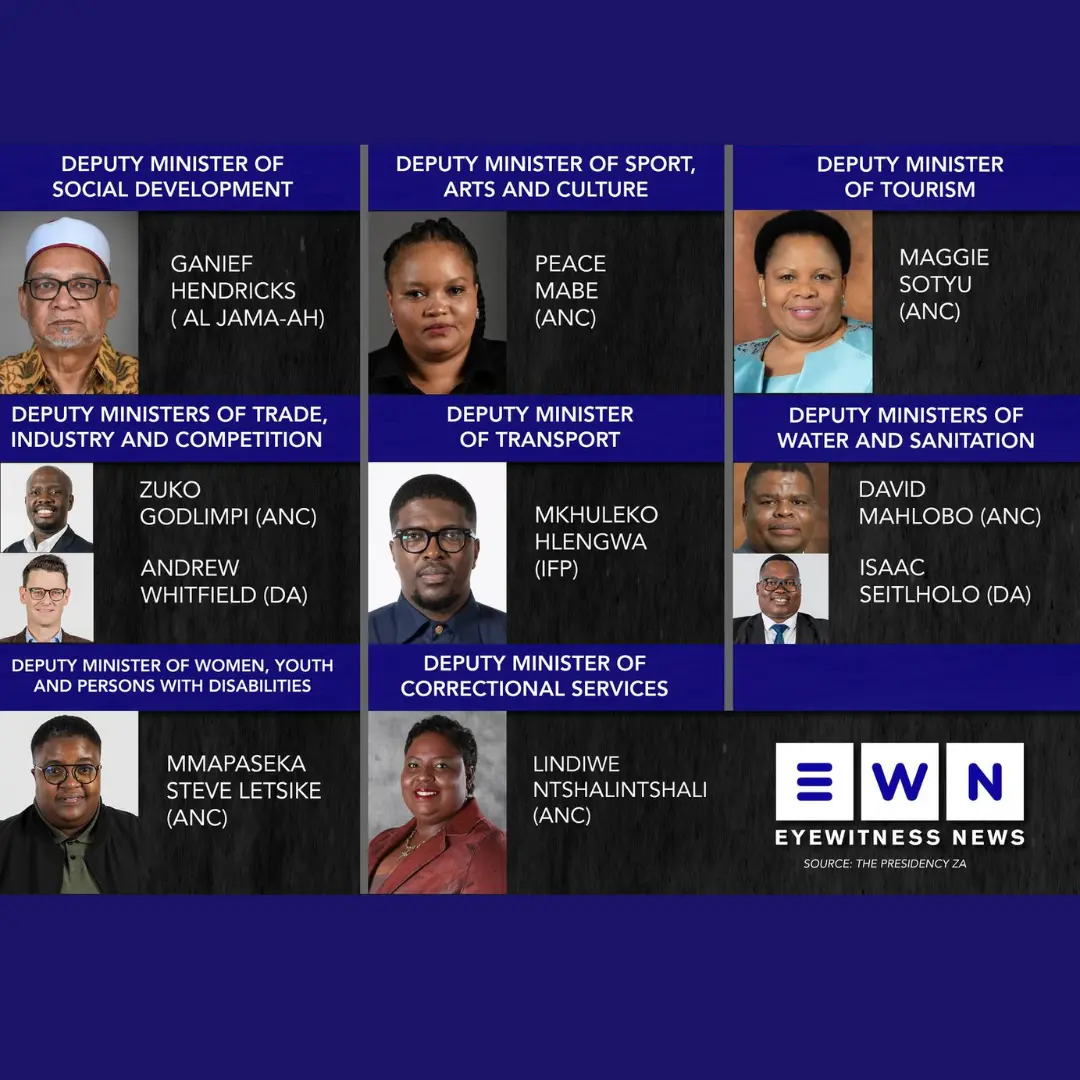
Graphic: Eyewitness News
The announcement of the GNU had an immediate impact on the markets, though, as the rand experienced a boost in the days thereafter.
In the six months since being formed, while tensions have been raised, the coalition has held.
FALLS FROM GRACE
Mapisa-Nqakula corruption allegations
Veteran ANC politician Nosiviwe Mapisa-Nqakula resigned as the National Assembly Speaker and as a member of Parliament in April after allegations of corruption emerged in the media.
It is alleged she received kickbacks on tenders when she was the minister of defence.
The matter has since moved to court, where the former Speaker is facing 12 charges of corruption and one of money laundering.
During the subsequent court proceedings, it has been alleged that Mapisa-Nqakula was asked for help with a suspended tender worth R104 million by a contractor. The court also heard that the veteran politician used the alleged kickbacks to renovate her home.
The court case is ongoing.
Zizi Kodwa corruption allegations
After appearing in court on corruption charges in June, veteran ANC politician Zizi Kodwa resigned as the minister of sport. Kodwa was accused of receiving bribes from former EOH CEO Jehan Mackay between 2015 and 2016 and in exchange, his company was awarded R400 million in government contracts.
Following his resignation as sports minister, Kodwa stepped aside as a member of the ANC's NWC and NEC, in accordance with the party's rule that members charged with serious crimes should relinquish their positions in government and within the party.
Despite resigning as sports minister, Kodwa remained a member of Parliament (MP), and this caused a big stink when he was sworn as an MP in at the start of the seventh administration. Under pressure though, Kodwa resigned as an MP in July.
In November, though, the charges against Kodwa and Mackay were dropped, with the NPA not providing reasons for the decision. While Kodwa has indicated his wish to resume his duties with the ANC, the NPA's head, Shamila Batohi, said she was reviewing the decision to drop charges against Kodwa and Mackay.
Thembi Simelane corruption allegations
Minister Thembi Simelane was seemingly given a lifeline when President Ramaphosa reshuffled his Cabinet in early December. This was after Simelane was accused of living large after receiving a loan from Gundo Investments, a fixer linked to the looting of VBS Mutual Bank, while she was the mayor of Polokwane in 2016.
In September, Simelane submitted a report to the president explaining the transaction. The report, though, was not made public.
Ramaphosa in December moved Simelane from the justice portfolio to human settlements. Mmamoloko Kubayi was moved from human settlements to the justice ministry.
Renaldo Gouws' past comes back to haunt him
Renaldo Gouws' stint as an MP was short-lived after his past came back to haunt him. After being sworn in as one of the DA's 87 MPs after the May elections, a 2009 video resurfaced in which he uses racist and derogatory language during a rant against black people.
The DA terminated his membership after a probe into the matter by the party’s federal legal commission.
The party said that Gouws was found guilty of contravening "several sections of the DA's constitution".
John Hlophe impeachment and MK enlistment
After getting a taste for impeachment in 2023 when the National Assembly impeached Busisiwe Mkhwebane as Public Protector, the National Assembly made history again when it impeached Western Cape Judge President John Hlophe and Gauteng High Court judge, Nkola Motata, the first judges to be impeached.
Both Hlophe and Motata were relieved of their judicial duties.
Hlophe was impeached after being found guilty of gross misconduct for his attempt to improperly influence two Constitutional Court justices in a case involving Former President Jacob Zuma in 2008.
Motata was impeached for a 2007 drunk driving incident that turned into a racist tirade.
The Judicial Service Commission (JSC) recommended his removal for gross misconduct.
Hlophe's story was not done, as he made his way to Parliament as the MK Party's parliamentary leader.
The former judge president courted more controversy when he was designated to serve on the JSC, the same body that recommended he be impeached.
A number of parties objected to his nomination based on his impeachment.
The matter headed to court where Hlophe was barred from sitting in the October leg of JSC interviews to choose judges to serve on the judiciary.
Hlophe then resigned from the JSC.
BELA ACT
In September, President Cyril Ramaphosa signed the Basic Education Laws Amendment (BELA) Bill into law.
The law, amongst others, makes Grade R compulsory, outlaws corporal punishment in school, and makes provincial education departments responsible for language policies.
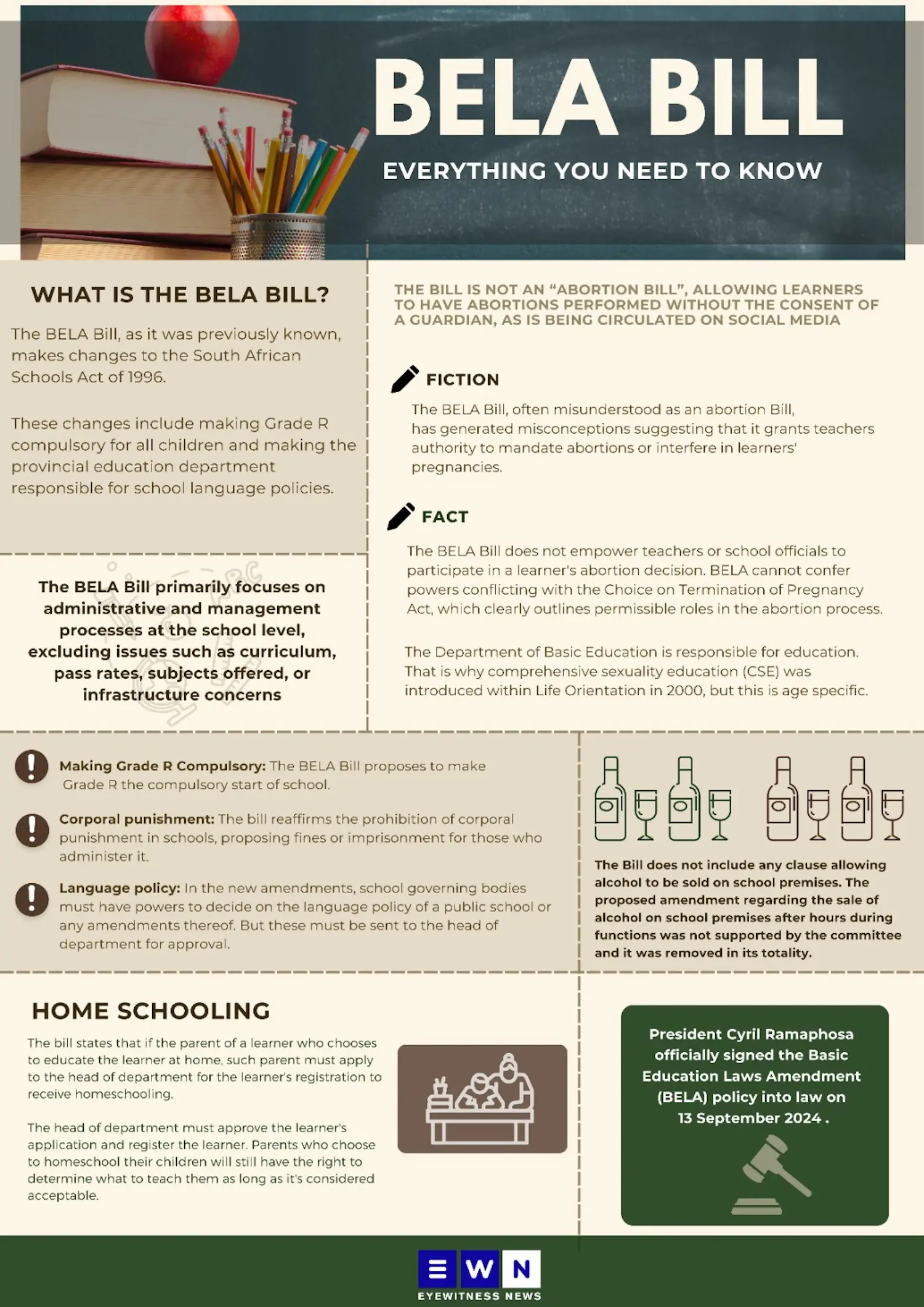
Ramaphosa signed the bill into law but suspended the implementation of sections four and five of the act for a few months, for parties against these sections to find middle ground.
These sections address language and admission policies at public schools.
In November, the DA and minority lobby group, AfriForum, organised a mass protest against the BELA Act at the Voortrekker Monument in Pretoria.
AfriForum believes the BELA Act is targeting Afrikaans schools.
In December, the president promulgated the BELA Act, saying the GNU clearing house had given him the green light to proceed with the act, and not send sections four and five back to Parliament.
He said he had advised Basic Education Minister Siviwe Gwarube to see to the implementation of the act.
PARLIAMENT FIRE
Two years after the National Assembly chamber was damaged in a fire, construction on the new building is set to start in January.
In August, Parliament released design sketches for the new building, while a contractor was appointed in October.
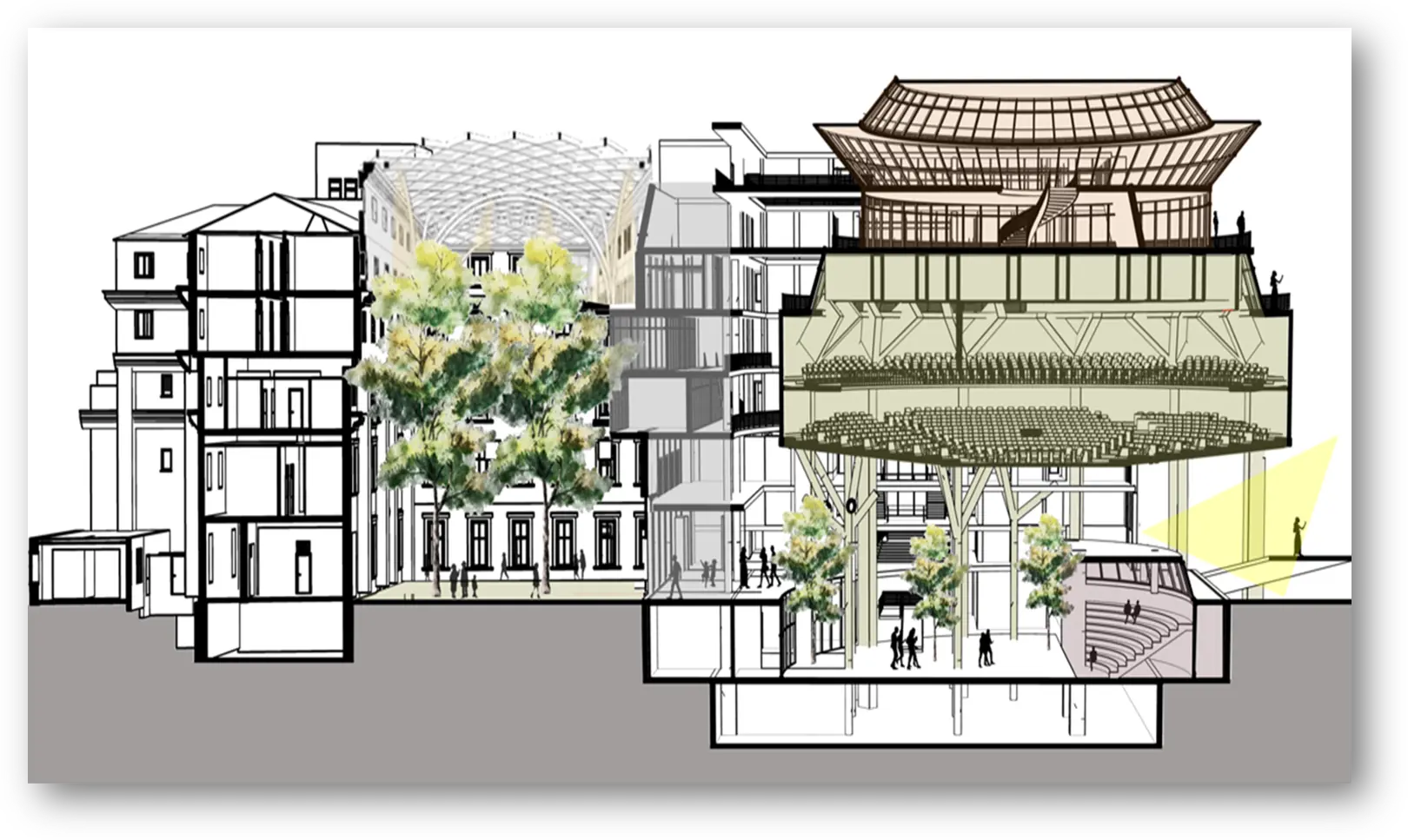
Picture: Supplied/Parliament
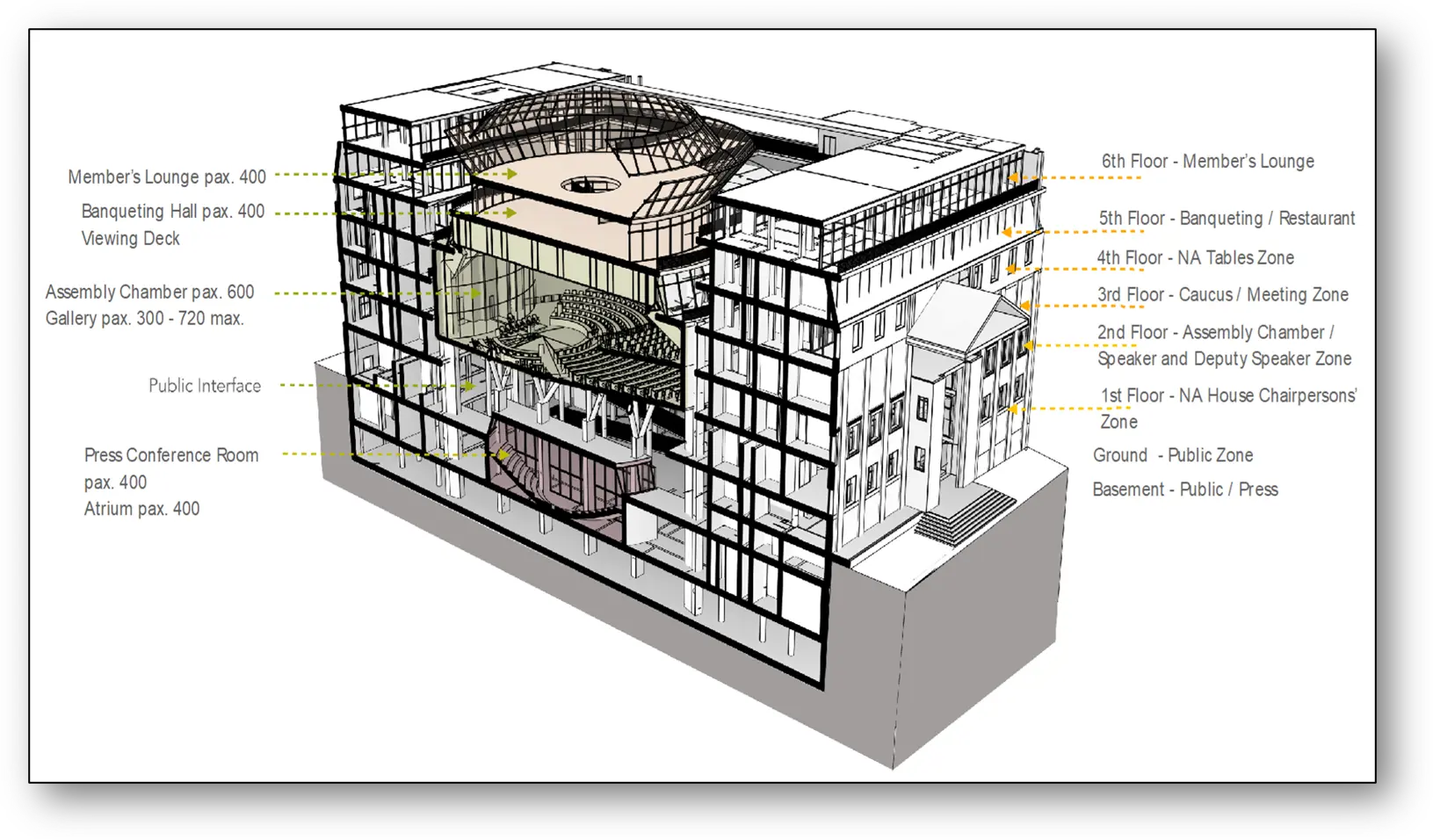
Picture: Supplied/Parliament
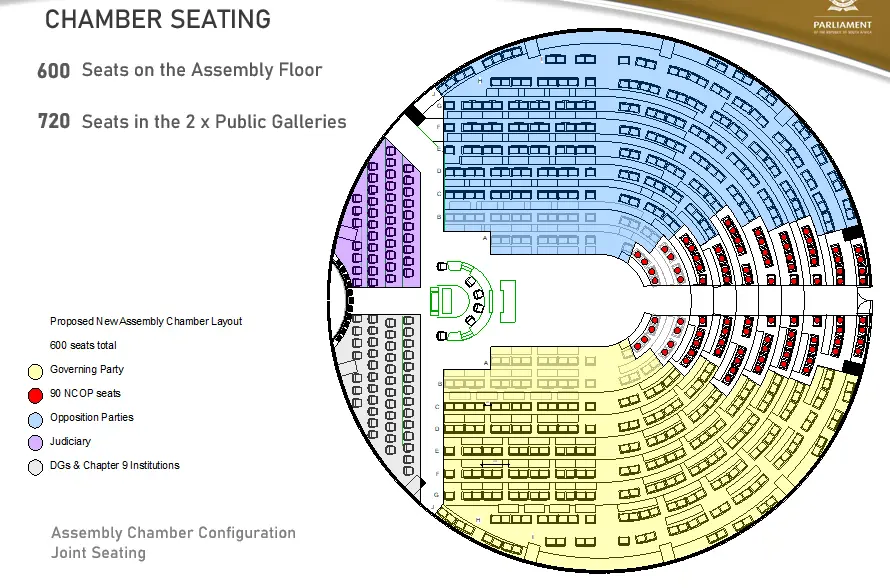
Picture: Supplied/Parliament
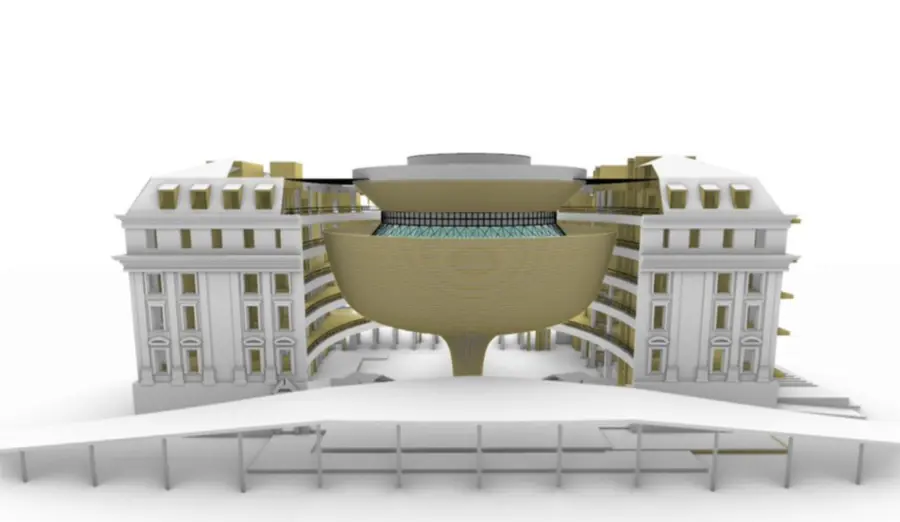
Picture: Supplied/Parliament
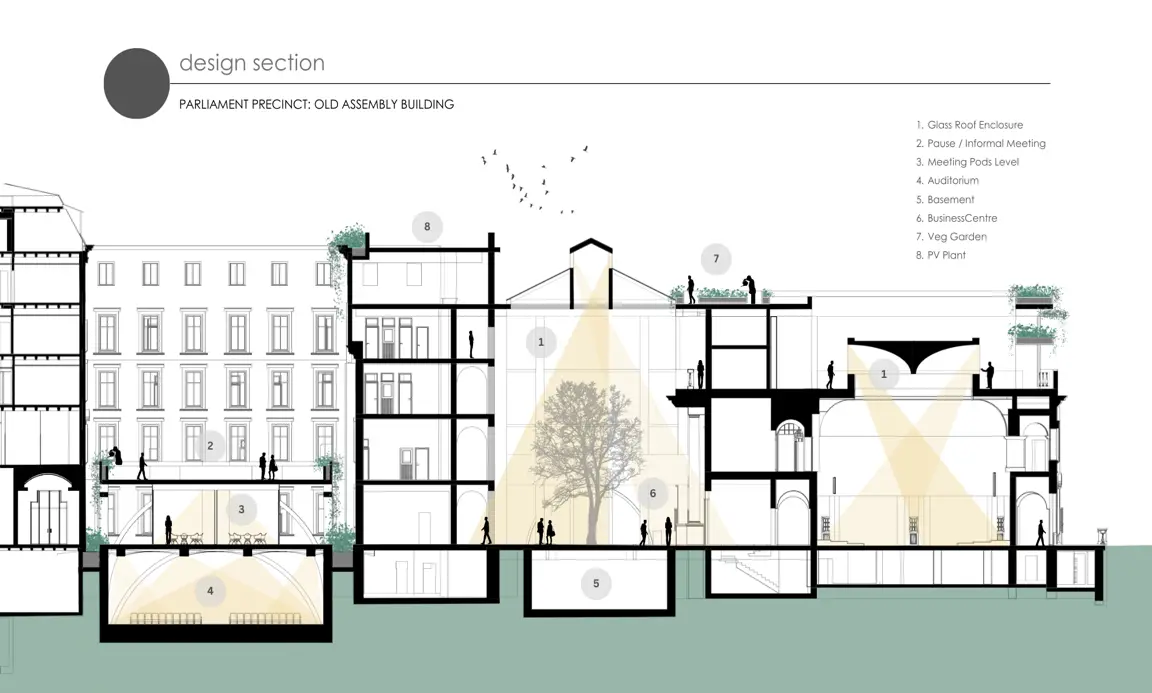
Picture: Supplied/Parliament
While the construction takes place, National Assembly plenary sessions are set to return to full face-to-face sessions after the dome used for Nelson Mandela's funeral in 2013 was shipped to Cape Town for assembly.
While the Department of Public Works has indicated that the dome witll be ready for the State of the Nation Address (SONA) in February, Parliament indicated that the event would again be held at the Cape Town City Hall.

